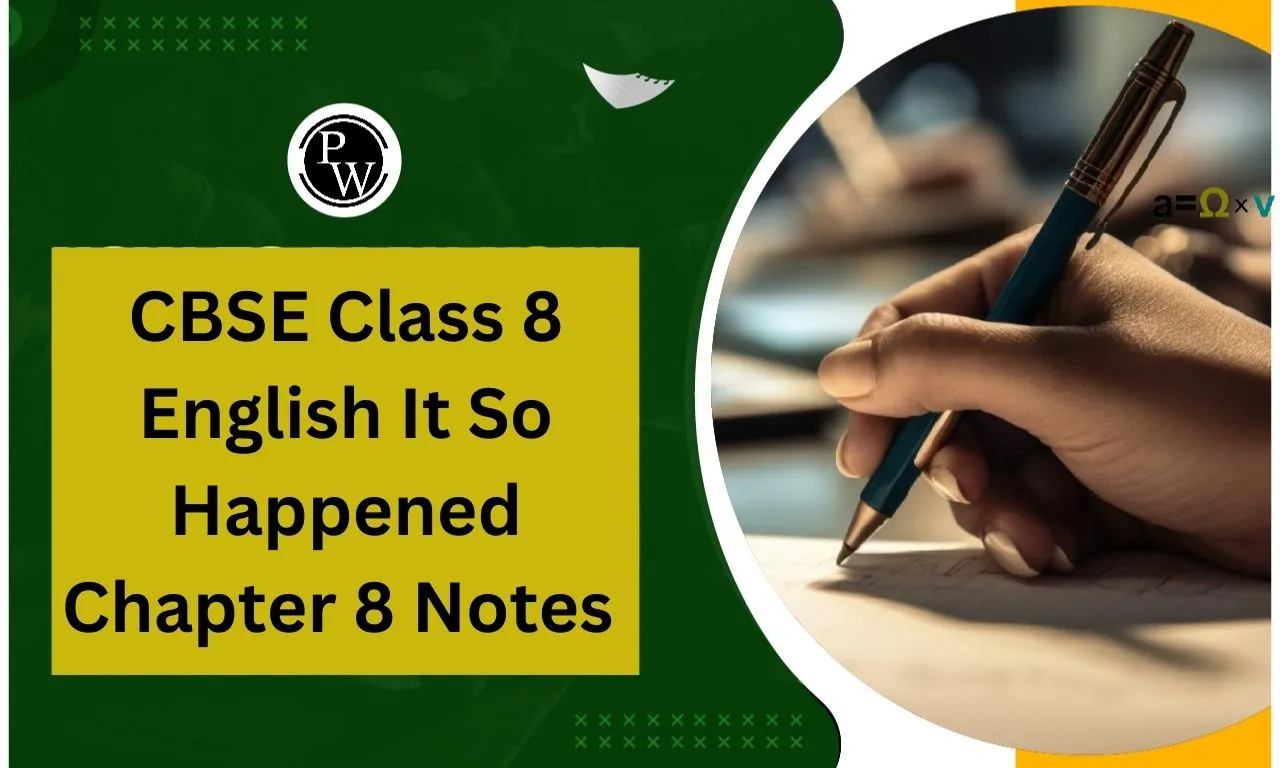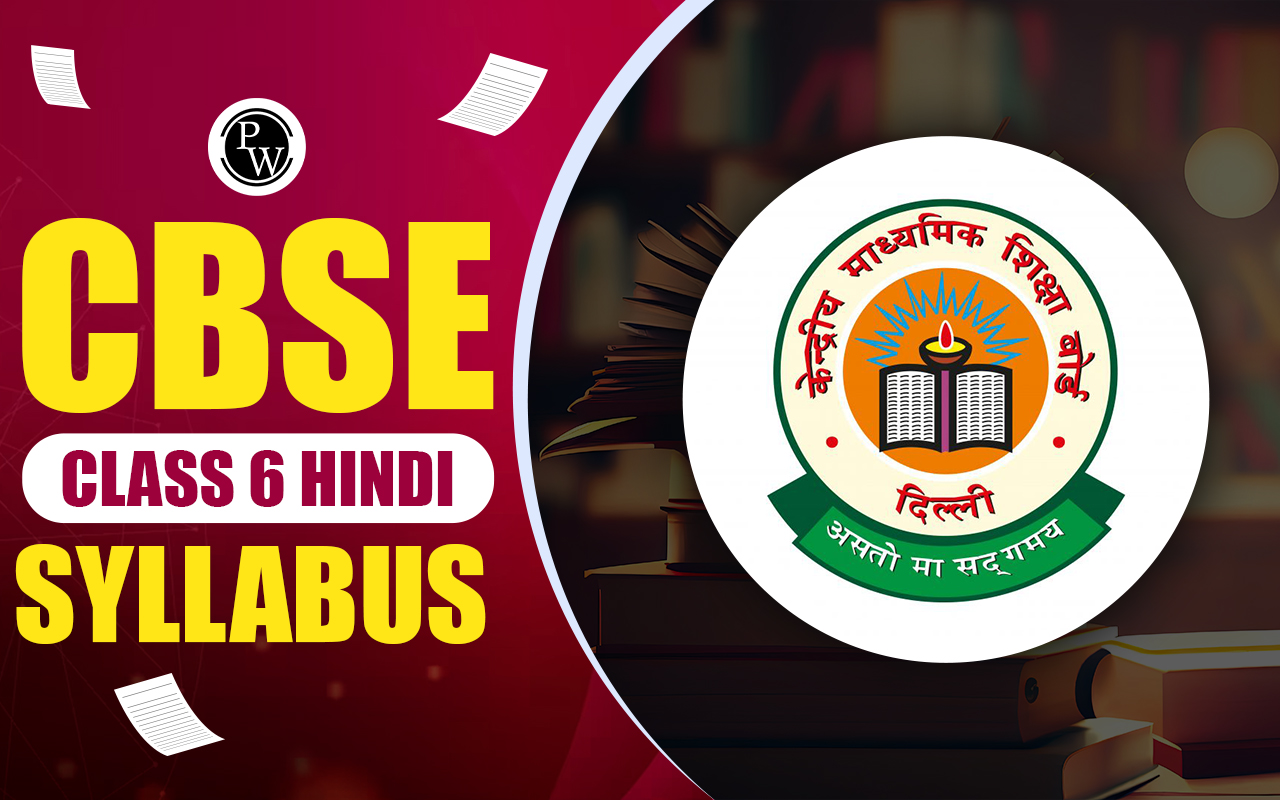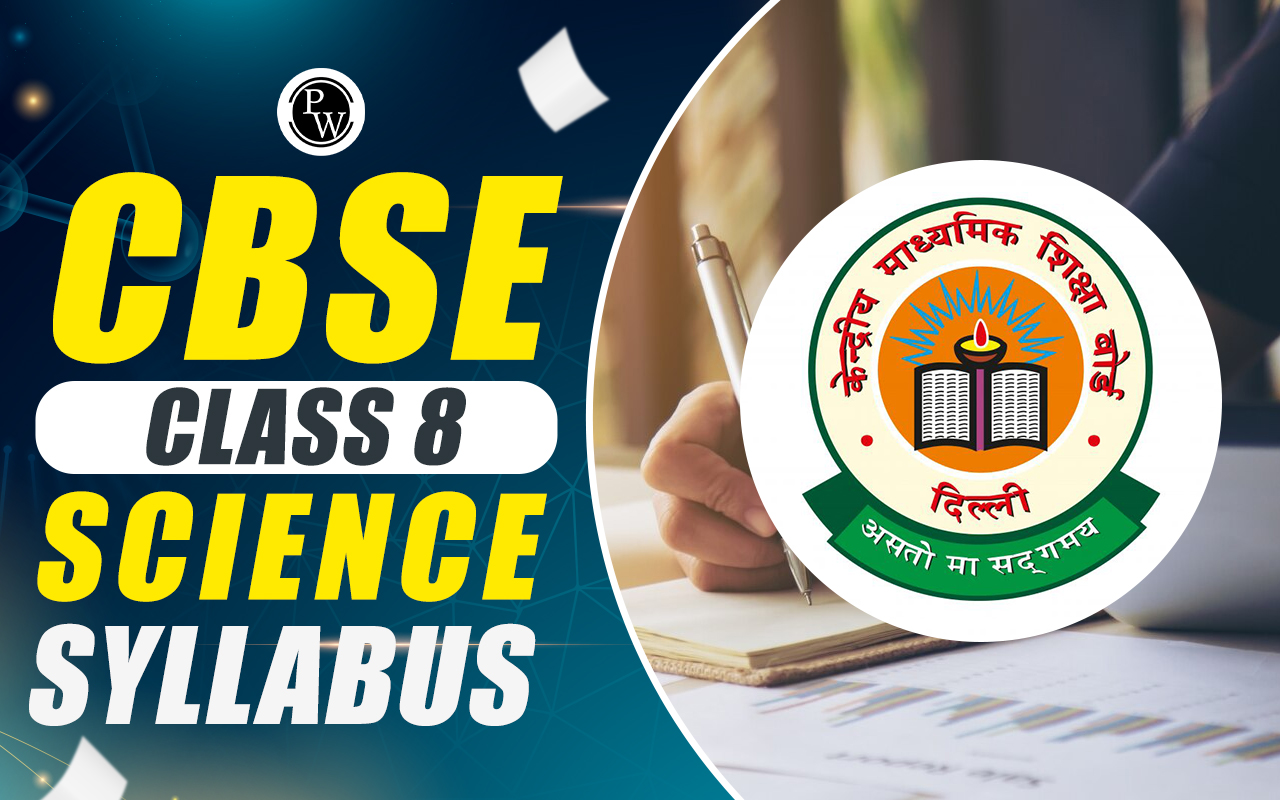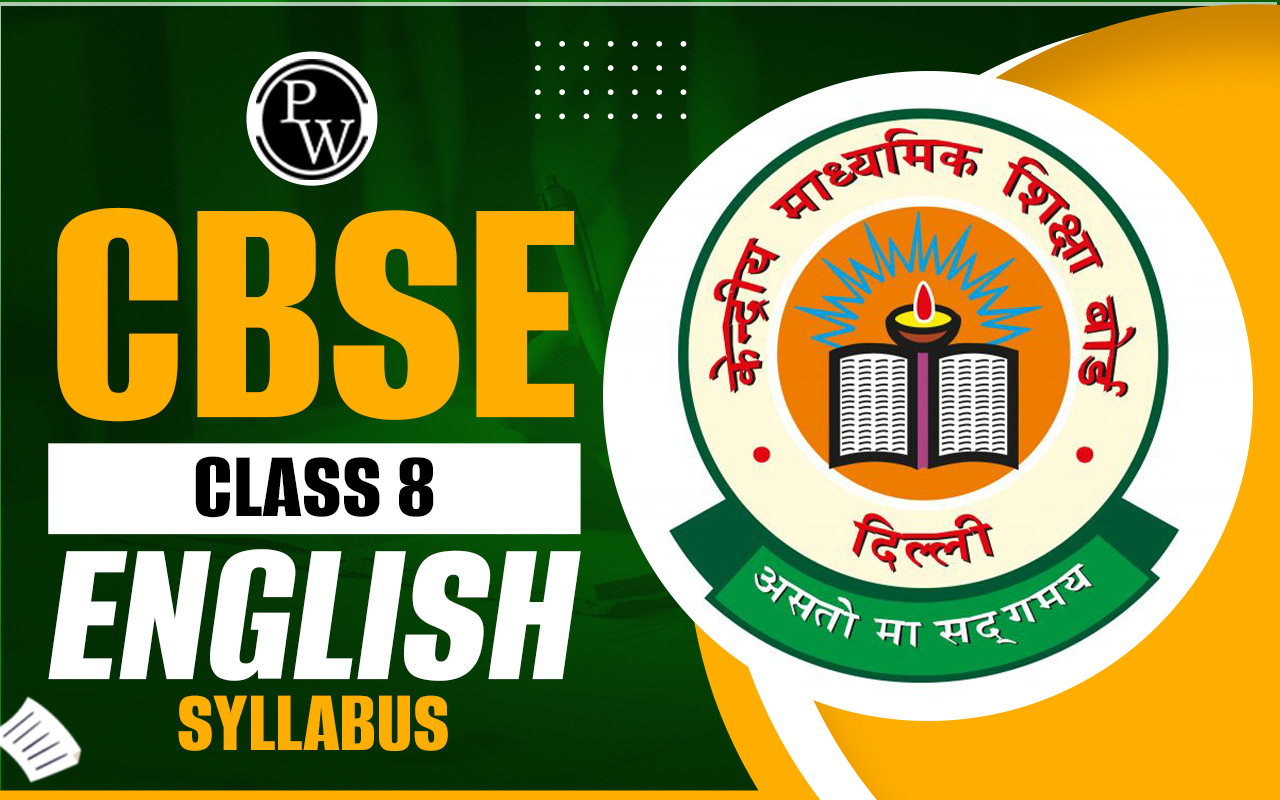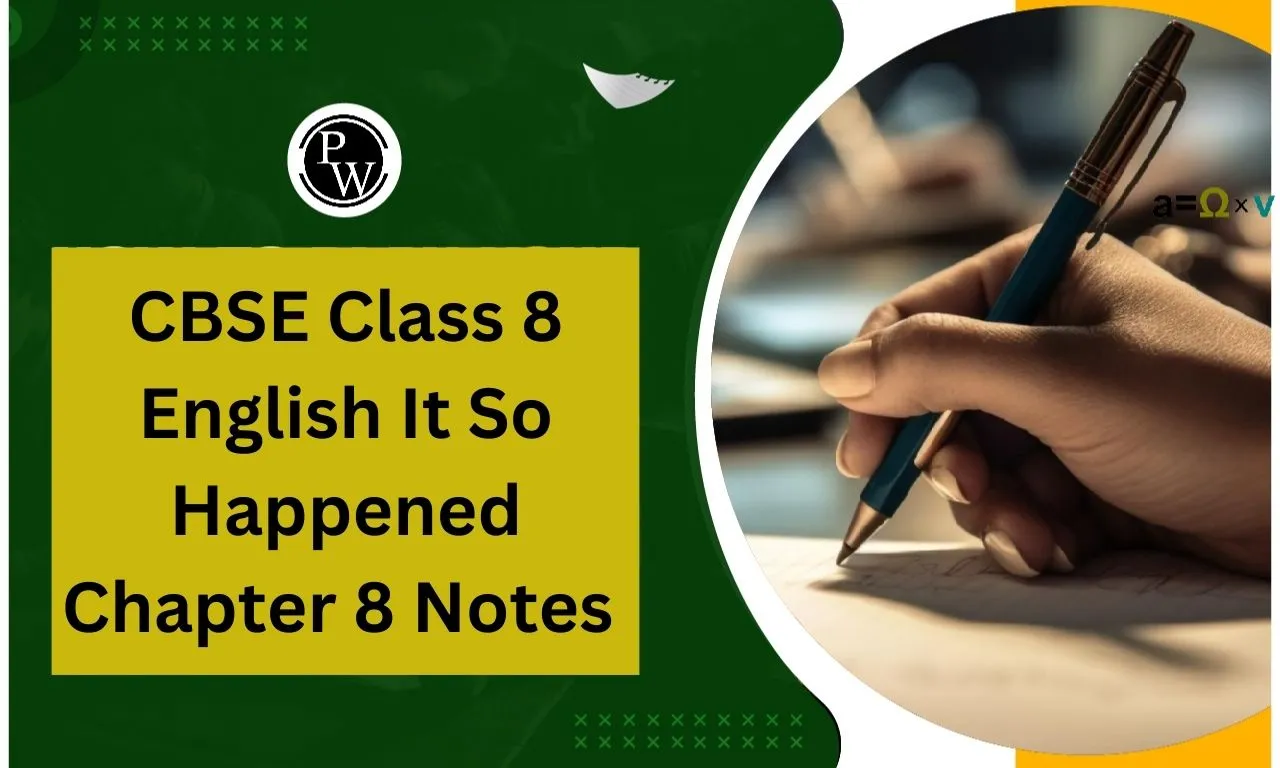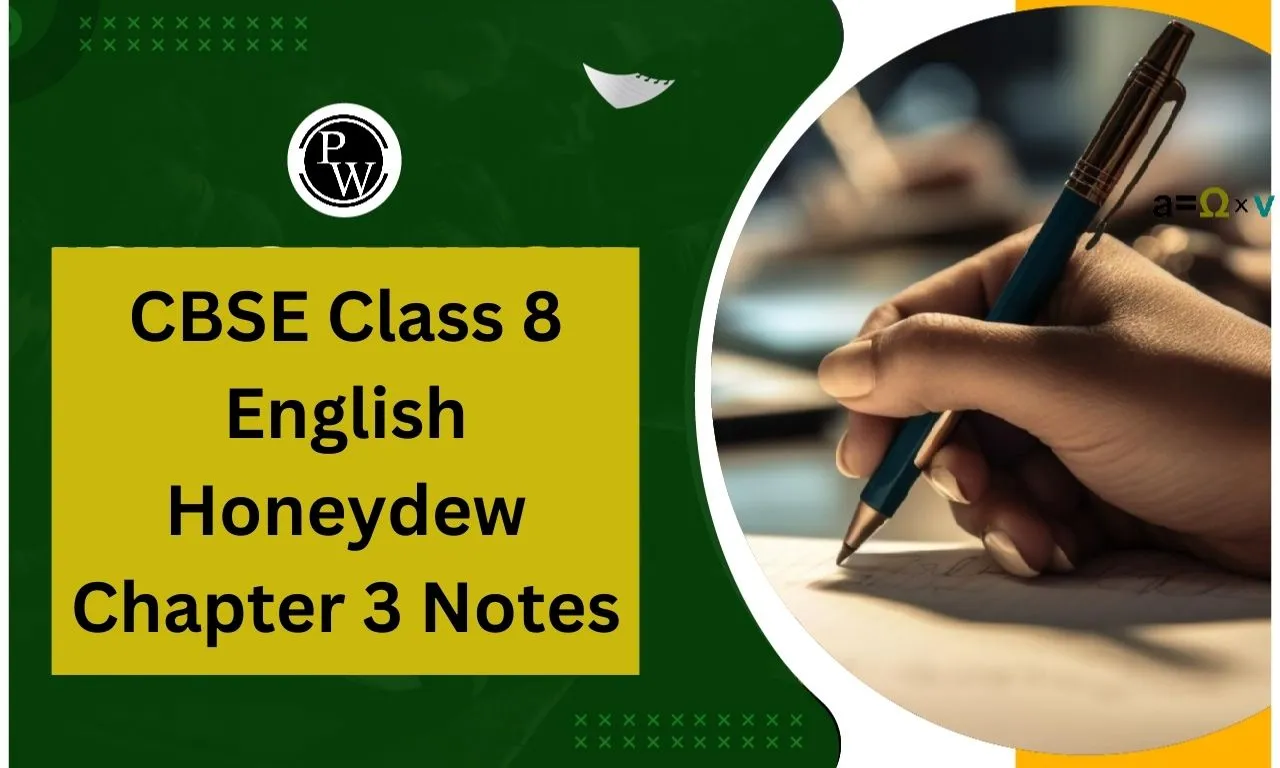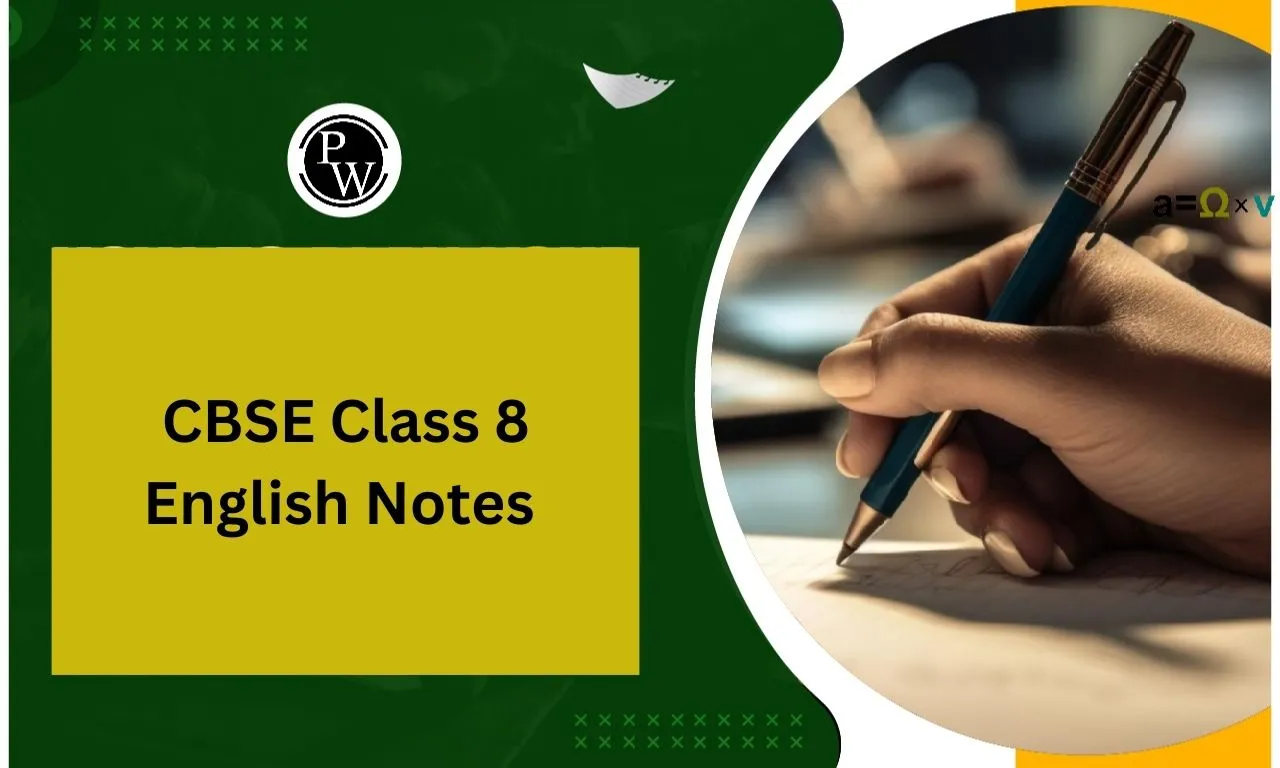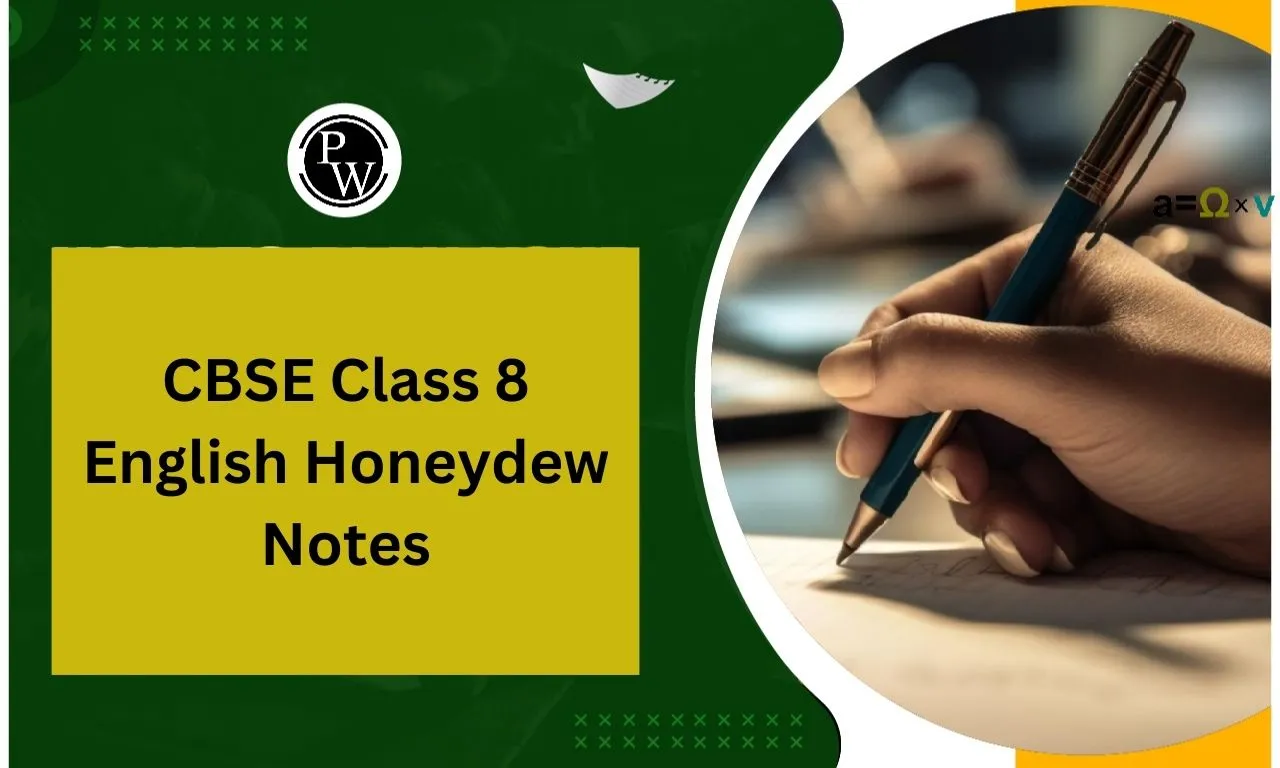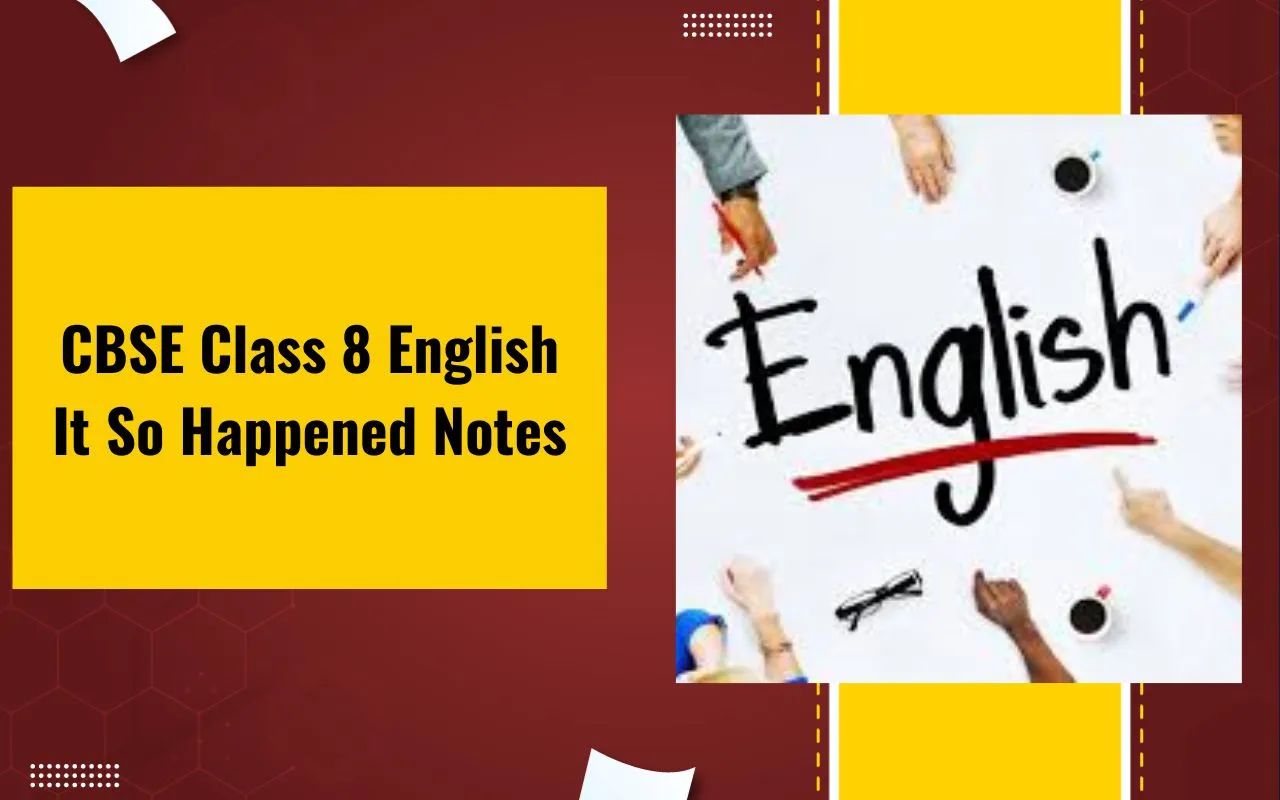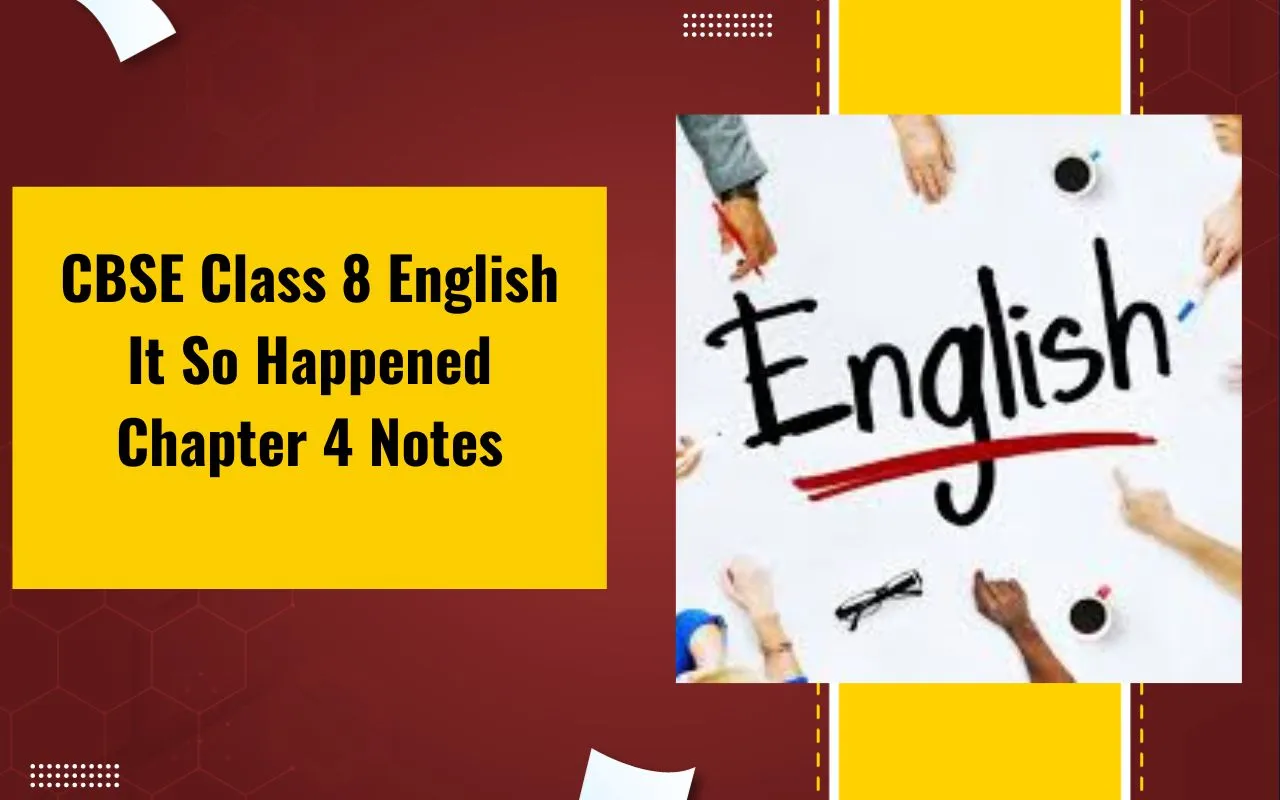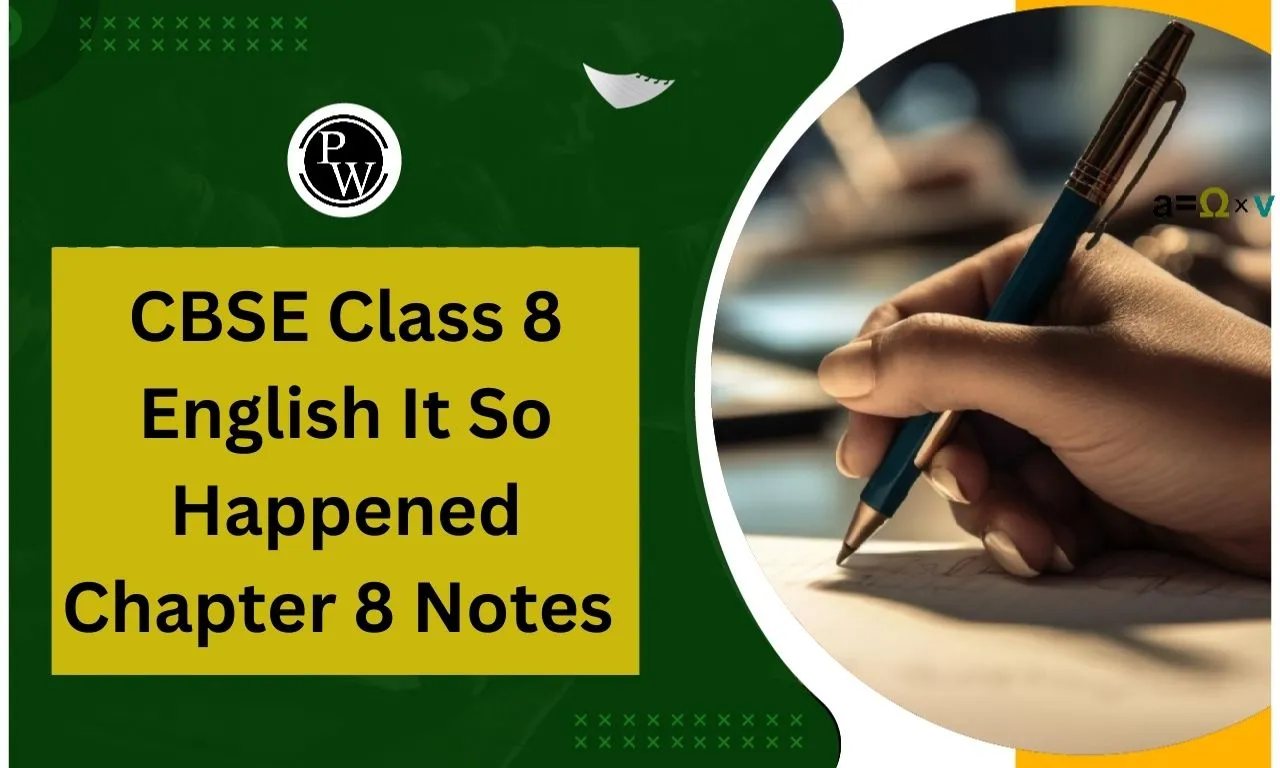
CBSE Class 8 English It So Happened Chapter 8 Notes: This chapter from It So Happened (CBSE Class 8 English) introduces students to the rich and holistic ancient Indian education system. It highlights the gurukul system, where learning focused not only on academics but also on values, discipline, and life skills. Emphasis was placed on oral transmission of knowledge, meditation, and debate.
The chapter aligns well with the CBSE syllabus and prepares students for comprehension-based questions in the exam. Understanding key concepts, practicing NCERT solutions, and focusing on value-based questions will help in scoring well as per the Class 8 English exam pattern.
CBSE Class 8 English It So Happened Chapter 8 Notes Overview
Chapter 8, Ancient Education System of India, emphasizes the value of holistic learning in ancient times. It highlights how education was not limited to academics but also focused on moral development, discipline, and life skills. The gurukul system encouraged close interaction between teacher and student, promoting a deep understanding of subjects.
These notes are important for building awareness of India’s rich educational heritage and drawing comparisons with the modern system. Studying this chapter helps students answer comprehension and value-based questions effectively, making it essential for CBSE exam preparation and aligned with the syllabus and exam pattern.
CBSE Class 8 English It So Happened Chapter 8 Ancient Education System of India Notes
Ancient Education System of India – Part 1 Summary
Many travellers from around the world, coming from different cultures and climates, visited India to discover its rich heritage. They were drawn to India’s traditions, religions, philosophies, art, beauty, and especially its educational system. The ancient Indian education system focused on the complete development of a person, physically, mentally, intellectually, and morally. It aimed to build strong values such as honesty, self-discipline, humility, and independence.
Education was deeply connected to the teachings of the Vedas and Upanishads, which guided individuals to perform their duties towards themselves, their families, and society. Other important sources included the works of scholars like Sushruta and Charaka, as well as texts like the Brahmanas and Dharmasutras. Students could learn from a wide range of subjects including literature, philosophy, history, logic, ethics, politics, trade, arts and even warfare.
Physical activities like games, archery, and yoga were also part of education to promote fitness and discipline. Debates and discussions were held regularly to assess knowledge, and group learning encouraged peer support. Education could be formal or informal and was provided in various settings such as gurukuls, pathshalas, temples, and early schools.
In India, schools were seen as sacred places of learning. Gurukuls were residential schools located in natural surroundings, and higher education was available at ancient universities. Women scholars also contributed to Vedic knowledge. Education went beyond books and aimed at building a student’s character, skills, and overall personality.
Ancient Education System of India – Part 2 Summary
Since ancient times, many monasteries and viharas were set up for monks and nuns to meditate, discuss ideas, and engage in debates. For higher education, large universities were established that welcomed students from different parts of the world. Education was highly respected, and kings, as well as the general public, supported it. The Jataka tales and writings of Chinese scholars like Xuan Zang and I-Qing highlight how deeply education was valued. Famous universities of that time included Nalanda, Takshashila, Valabhi, Odantapuri, Vikramshila, and Jagaddala. These institutions offered advanced education through discussions and debates with experienced scholars. Kings even invited scholars from these places to exchange knowledge.
UNESCO has recognized these universities as heritage sites, calling them some of the greatest learning centres in history. Takshashila was a renowned Buddhist university that drew students from across the world. It taught subjects like ancient scriptures, medicine, law, astronomy, arts, and military science. Well-known scholars such as Panini, Jivaka, and Chanakya studied there.
Teachers played a key role—they chose the students, planned the lessons, and decided when the learning was complete. They encouraged students to learn by listening and speaking. Nalanda was another major centre of education visited by Xuan Zang and I-Qing in the 7th century CE. Its curriculum included the Vedas, mathematics, fine arts, medicine, astronomy, politics, and warfare.
The community also helped support education. Wealthy merchants, parents, and society donated money to schools. Many universities, including Valabhi, Vikramshila, and Jagaddala, provided free education. In South India, agraharas were centres of learning, and institutions like Ghatika and Brahmapuri helped preserve culture and education.
Even during the medieval period, learning continued in ashrams, temples, maktabas, and madrassas. The focus remained on complete personality development—mental, physical, and moral. Today’s education system can still learn much from these ancient traditions. Educators today play an important role in combining traditional and modern methods, and in promoting education that is both multilingual and multicultural.
CBSE Class 8 English It So Happened Chapter 8 Notes PDF
To help students understand the key concepts better, we have provided detailed notes for Chapter 8, Ancient Education System of India, from the CBSE Class 8 English It So Happened textbook.
These notes cover important points, summaries, and insights in a simple and easy-to-understand manner. They are designed as per the latest syllabus and exam pattern. Below, you can download the PDF version of these notes for quick reference and effective exam preparation.
CBSE Class 8 English It So Happened Chapter 8
Study without using the internet
CBSE Class 8 English It So Happened Chapter 8 Notes FAQs
What is the main focus of Chapter 8?
Which texts formed the foundation of ancient Indian education?
What was the role of Gurukuls?
Which famous universities existed in ancient India?

